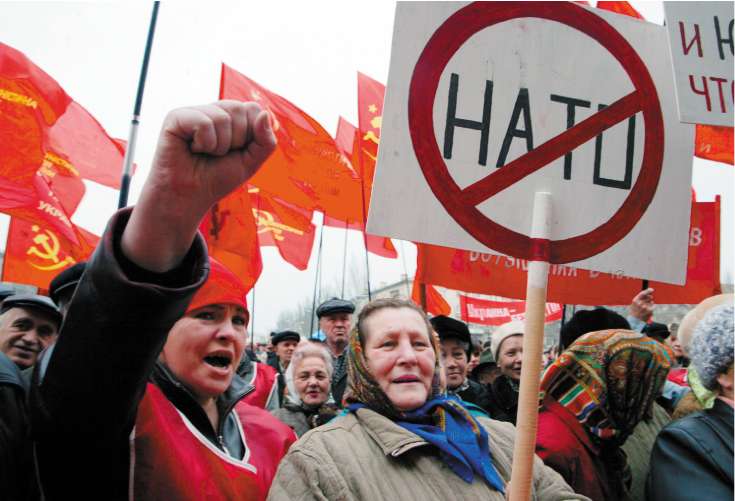EU allies unite against Bush over Nato membership for Georgia and Ukraine

Gordon Brown has sided with more cautious EU allies against President George Bush over US support for the admission of the former Soviet republics of Georgia and Ukraine being admitted to the North Atlantic Treaty Organisation.
The rift threatens to dominate the Nato summit in Romania and the US pressure risks provoking a crisis later in the week with the outgoing Russian President, Vladimir Putin, who has made it clear he will oppose Nato membership for the two states on Russia's borders.
Mr Brown joined Germany and France in urging caution on the US President at the summit in Bucharest in a "brush by" meeting with Mr Bush at the summit before a formal banquet. Mr Brown made it clear he supports the granting of Nato's membership action plan (MAP) to Georgia and Ukraine in principle, but he will not be pressing for it to be agreed at this summit.
Dmitry Medvedev, Russia's incoming president, warned this week that granting Nato membership to the two former Soviet republics could threaten European security.
Both the German Chancellor, Angela Merkel, and the French President, Nicolas Sarkozy, who are attending the summit, oppose immediate granting of MAP status to the two states, which would ultimately result in Nato guaranteeing to come to their aid if they were attacked.
Mr Bush repeated his view yesterday that the US believed that "Nato should welcome Georgia and Ukraine into the membership action plan", which sets out a path towards membership. It could take up to 10 years to fulfil but Mr Bush is looking for the signal to be given this week.
Senior British sources acknowledged there was a difference over timing of their admission to Nato. "We are agnostic – if there is a consensus, we would agree but we don't support pushing for it now," said one senior diplomat. British sources said Mr Brown believed that if there was an agreement satisfactory to all, he would "take a forward position like America" but there seemed little chance of a consensus at the Nato summit.
Ms Merkel reaffirmed on arriving in Bucharest that both countries should have a long-term prospect of Nato membership, "but there is one difference with the United States: we believe the time for MAP is not ripe".
A source close to Mr Brown dismissed suggestions that Mr Putin will use his own speech to the 26-nation Nato summit tomorrow to grandstand as a last gesture. Mr Putin, who is remaining as prime minister behind Mr Medvedev, will have "plenty of big shows yet", said the source.
Mikheil Saakashvili, Georgia's President, has warned that giving a veto to Russia over their admission would be seen as "appeasement" to Mr Putin. But Mr Brown's caution is supported by the former Tory foreign secretary Sir Malcolm Rifkind, who said: "The issue is not about trying to avoid annoying the Russians. Moscow has no right to say who will be or will not be a member of Nato. The issue is the preservation of Nato as a real defence pact and not merely as a political alliance. The stakes are high and rightly so."
The Prime Minister's apparent distancing from Mr Bush may be expected, given that the Republican President will retire from office this year, but Mr Brown is adamant about maintaining close relations both with the US and Russia. He is due to visit Washington in the next few weeks to emphasis the importance of the alliance.
Mr Brown's preoccupation remains, however, the world banking crisis which is casting a shadow over every aspect of the Nato summit.
The summit moved no closer last night to resolving a dispute over the membership of Macedonia, which had been expected to receive an invitation to join the alliance, along with Croatia and Albania. Greece has threatened to veto Macedonian membership as long as a dispute over the country's name remains unsettled. A Greek Foreign Ministry spokesman said last night that he thought the alliance was "running out of time". Greece opposes the former Yugoslav republic's bid for Nato membership because Macedonia is also the name of a northern Greek province, which it says implies a territorial claim.
Join our commenting forum
Join thought-provoking conversations, follow other Independent readers and see their replies
Comments